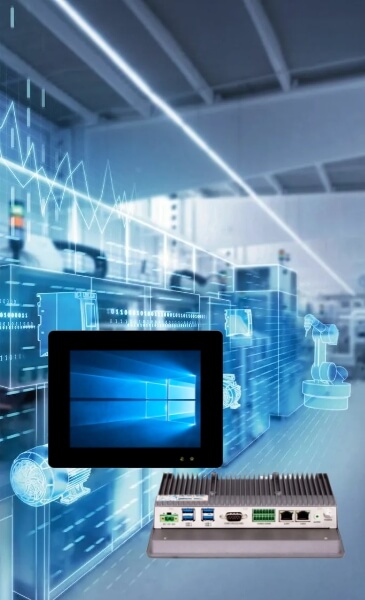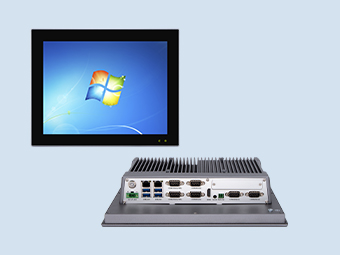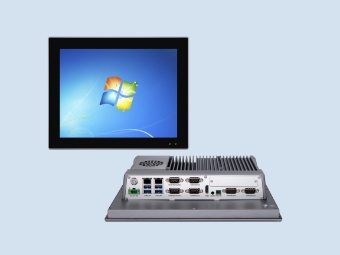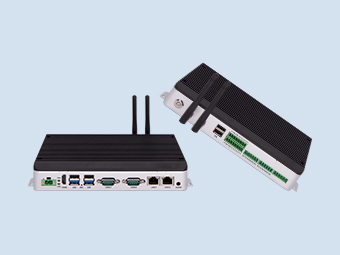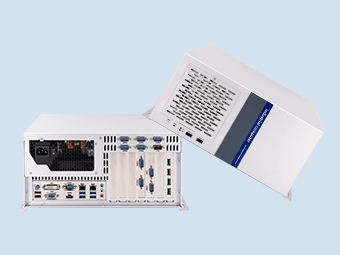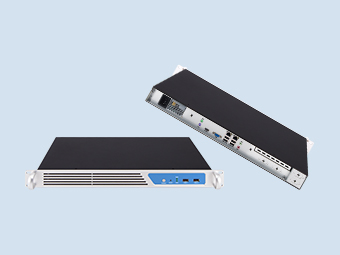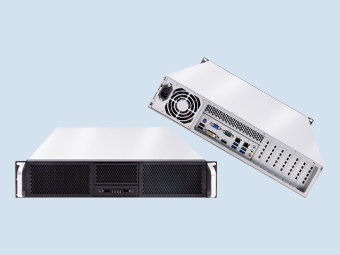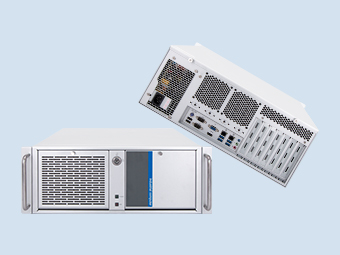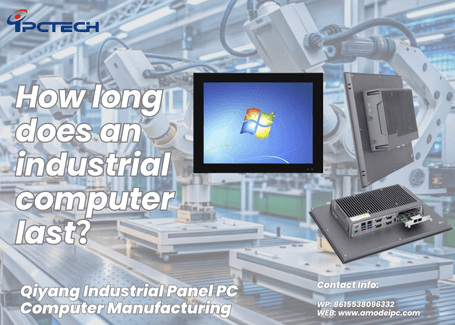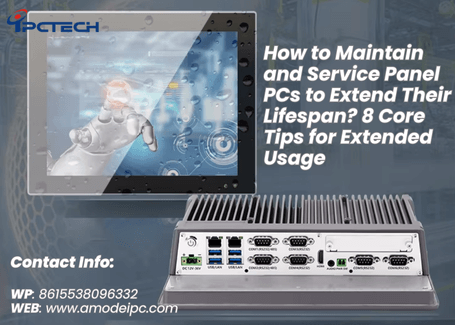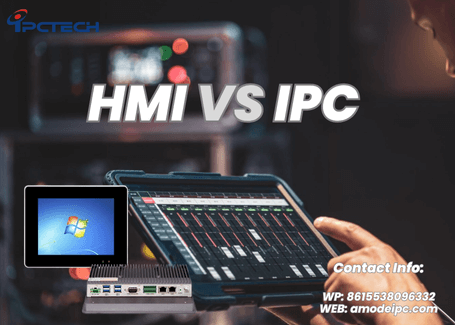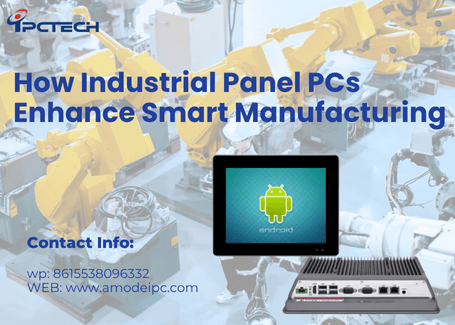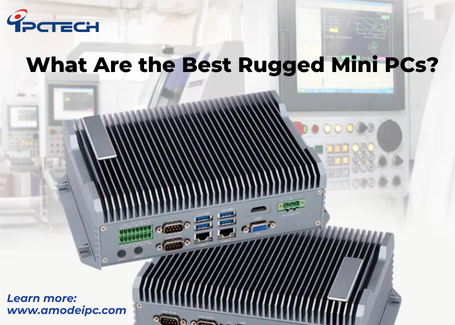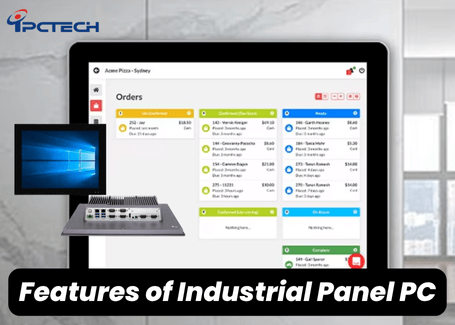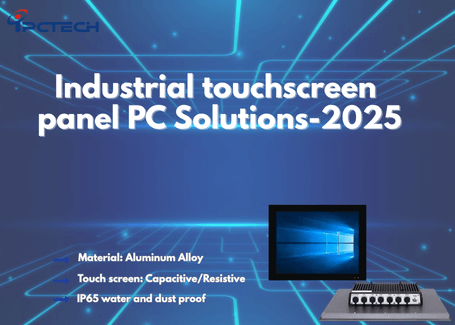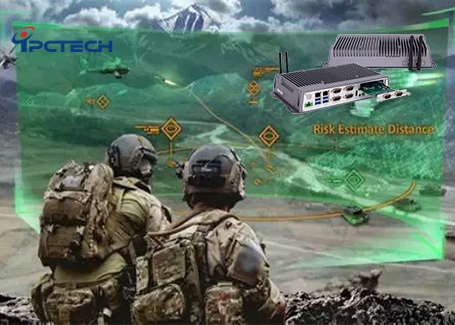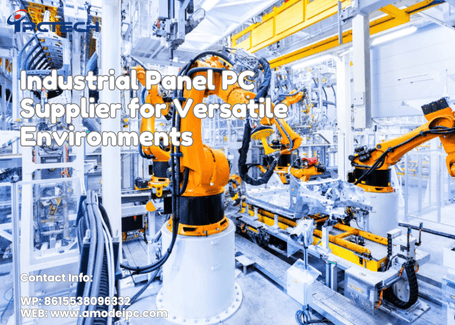IPCTech Industrial PC in Transportation Industry
2025-06-24
In the rapid development of science and technology, the transportation industry is undergoing unprecedented changes. With the acceleration of urbanization and the dramatic increase of traffic flow, the traditional traffic management and operation mode has been difficult to meet the needs of modern society for efficient, safe and intelligent transportation. Intelligent, automated upgrading of the transportation industry has become the key to break the game, and industrial computers (IPC) as the core hardware support, by virtue of its strong performance, high stability and flexible scalability, is deeply integrated into the various aspects of the transportation industry, and become the core force to promote change in the industry.
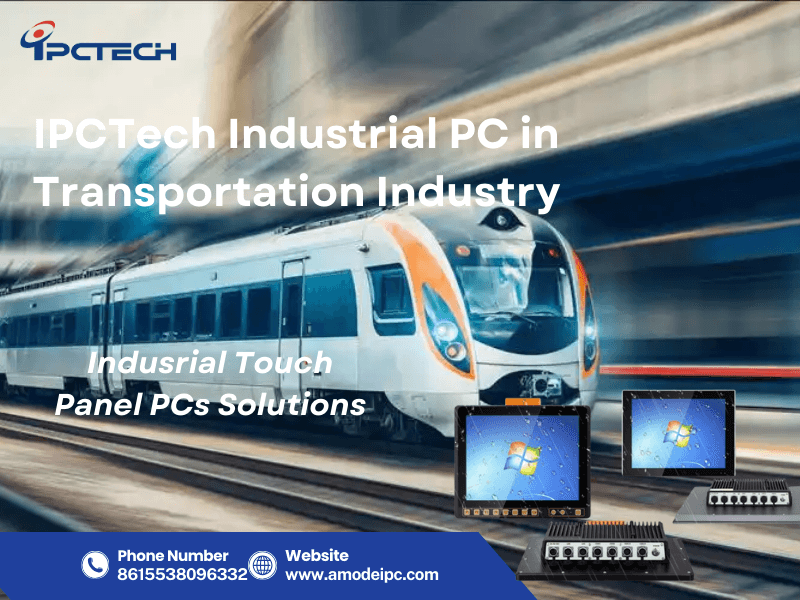
Transportation industry equipment operating environment is complex and variable, industrial panel pcs need to have a strong environmental adaptability. In terms of temperature, from minus 40 ℃ cold areas to 70 ℃ high-temperature environment, industrial computers are required to be able to run stably. For example, in China's northern winter, the outdoor temperature is often as low as minus 20 or 30 degrees, deployed in the roadside traffic monitoring equipment in the industrial computer, must be in the low-temperature normal collection and transmission of data; and in the hot summer, the vehicle's internal temperature may be more than 60 degrees Celsius, the vehicle's industrial computer needs to maintain a stable working condition, to ensure that the vehicle navigation, communication and other systems operate normally.
In addition, transportation equipment in the operation process will face continuous vibration and impact, like moving vehicles, running trains, will produce vibration. Industrial computers need to meet vibration and shock resistance standards such as MIL-STD to prevent internal components from being loosened or damaged by vibration. At the same time, dust and water resistance is also a key requirement. Roadside equipment and vehicle terminals are often exposed to outdoor environments, so the dust and water resistance level needs to reach IP65 or even IP67 in order to withstand dust and rain, and to ensure normal operation of the equipment in inclement weather.
The transportation industry involves massive real-time data processing and transmission, the performance requirements for industrial computers are extremely high. In the intelligent traffic management system, traffic flow monitoring equipment every second in the collection of a large number of traffic flow data, these data need to be quickly received by the industrial computer, analysis, and transformed into traffic signal control commands, signal lights to achieve intelligent timing, to ease traffic congestion. This requires industrial computers to be equipped with low-power, high-performance processors, such as Intel or ARM architecture chips, to ensure efficient processing of complex data operations.
In order to ensure system stability, industrial panel computers mostly adopt fanless design to minimize system overheating due to fan failure; and choose long life cycle hardware components to avoid frequent hardware replacement affecting system operation. In the field of automated driving, vehicle driving LIDAR, camera, millimeter wave radar and other sensors will produce massive amounts of data, industrial computers need to process these data in real time, to provide a basis for decision-making for the vehicle driving, any delay or error may lead to serious consequences, high-performance and stability have become the necessary characteristics of the industrial computer for automated driving.
Intelligent development of the transportation industry has led to the increasingly urgent need for functional integration of equipment. As the core equipment, industrial computers need to have rich interfaces to support all kinds of IoT sensor access. Common USB, COM and other interfaces can be connected to the card reader to achieve rapid identification and tracking of goods; connected to the camera for vehicle monitoring, violation of rules and regulations identification; connected to the GPS module to obtain accurate location information to achieve vehicle positioning and navigation.
Meanwhile, edge computing capability is becoming more and more important in the transportation industry. By pre-processing data locally, industrial computers can reduce the amount of data transmission to the cloud, reduce network latency, and improve system response speed. For example, in the intelligent traffic signal system, industrial computers use edge computing capabilities to analyze intersection traffic data in real time, dynamically adjust the length of the signal light, optimize traffic flow, and improve the efficiency of road traffic.
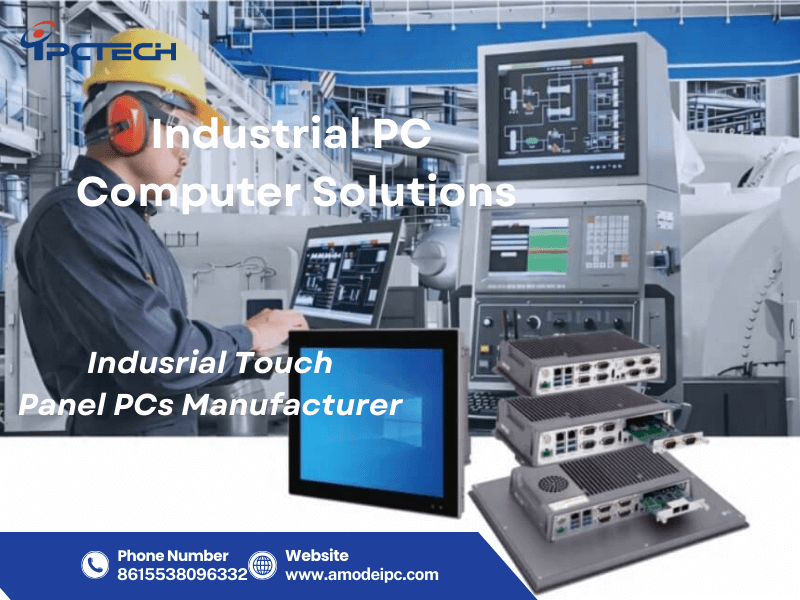
In the intelligent traffic management system, industrial computers undertake core processing tasks. In terms of traffic flow monitoring and signal light intelligent control, industrial computers deployed in key nodes of the road collect real-time traffic flow data from geomagnetic sensors, video cameras and other equipment, analyze and predict traffic flow trends through algorithms, and automatically adjust traffic signal light timing. For example, in the morning and evening rush hours, according to the real-time traffic flow to extend the green light hours of the main road, shorten the green light hours of the secondary roads to ease traffic congestion.
In terms of violation identification and monitoring data processing, the industrial computer is docked to the road monitoring camera, using image recognition technology to automatically identify and record behaviors such as vehicles running red lights, speeding, and changing lanes in violation of the law. At the same time, the monitoring video data is intelligently analyzed to extract key information, providing powerful evidence for traffic law enforcement. In addition, the industrial computer can also analyze and warn the road conditions in real time, through monitoring the road surface temperature, humidity, icing conditions and other data, timely release of road conditions warning information to protect driving safety.
Industrial computers play the role of “brain” in the intelligent vehicle system. Relying on the powerful computing ability of industrial computers, the vehicle navigation and path planning function obtains satellite positioning data and road condition information in real time, and plans the optimal driving route for drivers. At the same time, through the information interaction with the traffic management department, timely update road construction, accidents and other information, dynamic adjustment of navigation routes.
In terms of driver status monitoring and assisted driving, the industrial computer connects with cameras and sensors in the vehicle to monitor the driver's facial expression, eye condition, driving behavior, etc. in real time, to determine whether the driver is fatigued and inattentive, and to issue timely alerts. In addition, the industrial computer also supports adaptive cruise, auto-parking and other assisted driving functions, and realizes automatic vehicle following, parking and other operations by processing radar, camera and other sensor data to enhance driving safety and comfort. In-vehicle entertainment and information interaction system is also inseparable from the support of industrial computers, which can be connected to the vehicle display, audio and other equipment to provide passengers with music playback, video viewing, Internet browsing and other entertainment functions, while realizing the vehicle and the driver, the information interaction between passengers.
In the field of rail transportation, industrial computers are the key equipment to ensure the safe and efficient operation of trains. In the train operation control system, industrial computers support the Train Communication Network (TCN), which realizes data communication and command transmission between train cars and between the train and the ground control center, and ensures that train operation control commands are executed accurately and without errors. At the same time, real-time monitoring and control of the train's traction system, braking system and other key equipment is carried out to ensure the safety of train operation.
In terms of trackside equipment monitoring and fault early warning, the industrial computer real-time collection of track circuits, signaling machines, turnouts and other trackside equipment operation data, through data analysis to timely discover hidden equipment failures, and issue early warning information for maintenance personnel to deal with in a timely manner. In subway and railroad signal control and scheduling, industrial computers control signal machine display and turnout conversion according to the train operation plan and real-time operation status, so as to realize orderly scheduling of trains and improve the operation efficiency of rail transportation.
In the field of intelligent logistics and transportation, industrial computers help realize intelligent management of logistics and transportation. In terms of logistics vehicle positioning and cargo tracking, the vehicle-mounted industrial computer integrates GPS positioning system and cargo tracking sensors, obtains real-time information such as vehicle position, driving speed and cargo status, and transmits the data to the logistics dispatching center. Dispatchers can reasonably plan transportation routes based on this information, optimize the allocation of transportation resources, and improve the efficiency of logistics transportation.
In the control of warehouse automation equipment, the industrial computer acts as the control core and connects with automatic guided vehicles, automated sorting systems, intelligent shelves and other equipment to realize the automated storage, handling and sorting of goods. For example, in the goods inbound link, the industrial computer controls the AGV to accurately carry the goods to the designated shelves; in the outbound link, according to the order information to control the sorting equipment to quickly sort the goods and transport them to the shipping area through the conveyor belt. In addition, the industrial computer can also optimize the transportation route, combined with real-time road conditions, vehicle load and other information, to plan the best route for the logistics vehicle, reducing transportation costs.
In the field of aviation and airports, industrial computers ensure the efficient operation of ground equipment. In the baggage sorting control system, industrial computers are connected to barcode scanners, conveyor belt controllers and other equipment to quickly identify and process baggage information, and accurately control the sorting equipment to sort baggage onto the appropriate conveyor belts according to flight information and destinations, ensuring that baggage arrives on the same flight as passengers.
In terms of ground handling equipment status monitoring and management, industrial computers monitor the running status of fuel trucks, tractor-trailers, corridor bridges and other equipments in real time, analyze the equipment running data by collecting the voltage, current, temperature and other parameters of the equipments, find out the hidden troubles in time, carry out the maintenance and repair in advance, and guarantee the normal operation of the ground handling equipments. At the same time, industrial PCs are also used in airport navigation and guidance systems to provide accurate navigation information for aircraft landing, taxiing, and guiding aircraft to safely dock at the gate, thus improving the efficiency of airport operations.
To sum up, industrial PCs play a pivotal role in the intelligent transformation of the transportation industry, and IPCTech has become a reliable partner for transportation customers due to its outstanding advantages in hardware technology, software ecosystem and industry customization. From intelligent vehicles to traffic signals and monitoring, from railroad and rail transportation to intelligent logistics and warehousing, to aviation ground equipment, IPCTech industrial computers provide high-performance and highly reliable solutions for various transportation segments, helping customers achieve the goals of cost reduction and efficiency, and improving safety and service quality. In the future, with the growing demand for intelligence in the transportation industry, IPCTech will continue to uphold the spirit of innovation, increase investment in research and development, and continuously optimize its products and services, so as to inject a steady stream of power for the digital and intelligent development of the transportation industry. We sincerely invite our customers in the transportation industry to choose IPCTech industrial computer solutions and work hand in hand to open up a bright future of intelligent transportation, seize the first opportunity in the wave of intelligence, and realize the leapfrog development of the industry.
Demand characteristics of the transportation industry for industrial computers

Extreme environmental adaptability
Transportation industry equipment operating environment is complex and variable, industrial panel pcs need to have a strong environmental adaptability. In terms of temperature, from minus 40 ℃ cold areas to 70 ℃ high-temperature environment, industrial computers are required to be able to run stably. For example, in China's northern winter, the outdoor temperature is often as low as minus 20 or 30 degrees, deployed in the roadside traffic monitoring equipment in the industrial computer, must be in the low-temperature normal collection and transmission of data; and in the hot summer, the vehicle's internal temperature may be more than 60 degrees Celsius, the vehicle's industrial computer needs to maintain a stable working condition, to ensure that the vehicle navigation, communication and other systems operate normally.
In addition, transportation equipment in the operation process will face continuous vibration and impact, like moving vehicles, running trains, will produce vibration. Industrial computers need to meet vibration and shock resistance standards such as MIL-STD to prevent internal components from being loosened or damaged by vibration. At the same time, dust and water resistance is also a key requirement. Roadside equipment and vehicle terminals are often exposed to outdoor environments, so the dust and water resistance level needs to reach IP65 or even IP67 in order to withstand dust and rain, and to ensure normal operation of the equipment in inclement weather.
High performance and stability
The transportation industry involves massive real-time data processing and transmission, the performance requirements for industrial computers are extremely high. In the intelligent traffic management system, traffic flow monitoring equipment every second in the collection of a large number of traffic flow data, these data need to be quickly received by the industrial computer, analysis, and transformed into traffic signal control commands, signal lights to achieve intelligent timing, to ease traffic congestion. This requires industrial computers to be equipped with low-power, high-performance processors, such as Intel or ARM architecture chips, to ensure efficient processing of complex data operations.
In order to ensure system stability, industrial panel computers mostly adopt fanless design to minimize system overheating due to fan failure; and choose long life cycle hardware components to avoid frequent hardware replacement affecting system operation. In the field of automated driving, vehicle driving LIDAR, camera, millimeter wave radar and other sensors will produce massive amounts of data, industrial computers need to process these data in real time, to provide a basis for decision-making for the vehicle driving, any delay or error may lead to serious consequences, high-performance and stability have become the necessary characteristics of the industrial computer for automated driving.
Functional integration and scalability
Intelligent development of the transportation industry has led to the increasingly urgent need for functional integration of equipment. As the core equipment, industrial computers need to have rich interfaces to support all kinds of IoT sensor access. Common USB, COM and other interfaces can be connected to the card reader to achieve rapid identification and tracking of goods; connected to the camera for vehicle monitoring, violation of rules and regulations identification; connected to the GPS module to obtain accurate location information to achieve vehicle positioning and navigation.
Meanwhile, edge computing capability is becoming more and more important in the transportation industry. By pre-processing data locally, industrial computers can reduce the amount of data transmission to the cloud, reduce network latency, and improve system response speed. For example, in the intelligent traffic signal system, industrial computers use edge computing capabilities to analyze intersection traffic data in real time, dynamically adjust the length of the signal light, optimize traffic flow, and improve the efficiency of road traffic.
Core application scenarios of industrial panel pc computers in the transportation industry

Intelligent traffic management system
In the intelligent traffic management system, industrial computers undertake core processing tasks. In terms of traffic flow monitoring and signal light intelligent control, industrial computers deployed in key nodes of the road collect real-time traffic flow data from geomagnetic sensors, video cameras and other equipment, analyze and predict traffic flow trends through algorithms, and automatically adjust traffic signal light timing. For example, in the morning and evening rush hours, according to the real-time traffic flow to extend the green light hours of the main road, shorten the green light hours of the secondary roads to ease traffic congestion.
In terms of violation identification and monitoring data processing, the industrial computer is docked to the road monitoring camera, using image recognition technology to automatically identify and record behaviors such as vehicles running red lights, speeding, and changing lanes in violation of the law. At the same time, the monitoring video data is intelligently analyzed to extract key information, providing powerful evidence for traffic law enforcement. In addition, the industrial computer can also analyze and warn the road conditions in real time, through monitoring the road surface temperature, humidity, icing conditions and other data, timely release of road conditions warning information to protect driving safety.
Intelligent vehicle system
Industrial computers play the role of “brain” in the intelligent vehicle system. Relying on the powerful computing ability of industrial computers, the vehicle navigation and path planning function obtains satellite positioning data and road condition information in real time, and plans the optimal driving route for drivers. At the same time, through the information interaction with the traffic management department, timely update road construction, accidents and other information, dynamic adjustment of navigation routes.
In terms of driver status monitoring and assisted driving, the industrial computer connects with cameras and sensors in the vehicle to monitor the driver's facial expression, eye condition, driving behavior, etc. in real time, to determine whether the driver is fatigued and inattentive, and to issue timely alerts. In addition, the industrial computer also supports adaptive cruise, auto-parking and other assisted driving functions, and realizes automatic vehicle following, parking and other operations by processing radar, camera and other sensor data to enhance driving safety and comfort. In-vehicle entertainment and information interaction system is also inseparable from the support of industrial computers, which can be connected to the vehicle display, audio and other equipment to provide passengers with music playback, video viewing, Internet browsing and other entertainment functions, while realizing the vehicle and the driver, the information interaction between passengers.
Railway transportation field
In the field of rail transportation, industrial computers are the key equipment to ensure the safe and efficient operation of trains. In the train operation control system, industrial computers support the Train Communication Network (TCN), which realizes data communication and command transmission between train cars and between the train and the ground control center, and ensures that train operation control commands are executed accurately and without errors. At the same time, real-time monitoring and control of the train's traction system, braking system and other key equipment is carried out to ensure the safety of train operation.
In terms of trackside equipment monitoring and fault early warning, the industrial computer real-time collection of track circuits, signaling machines, turnouts and other trackside equipment operation data, through data analysis to timely discover hidden equipment failures, and issue early warning information for maintenance personnel to deal with in a timely manner. In subway and railroad signal control and scheduling, industrial computers control signal machine display and turnout conversion according to the train operation plan and real-time operation status, so as to realize orderly scheduling of trains and improve the operation efficiency of rail transportation.
Intelligent Logistics and Transportation
In the field of intelligent logistics and transportation, industrial computers help realize intelligent management of logistics and transportation. In terms of logistics vehicle positioning and cargo tracking, the vehicle-mounted industrial computer integrates GPS positioning system and cargo tracking sensors, obtains real-time information such as vehicle position, driving speed and cargo status, and transmits the data to the logistics dispatching center. Dispatchers can reasonably plan transportation routes based on this information, optimize the allocation of transportation resources, and improve the efficiency of logistics transportation.
In the control of warehouse automation equipment, the industrial computer acts as the control core and connects with automatic guided vehicles, automated sorting systems, intelligent shelves and other equipment to realize the automated storage, handling and sorting of goods. For example, in the goods inbound link, the industrial computer controls the AGV to accurately carry the goods to the designated shelves; in the outbound link, according to the order information to control the sorting equipment to quickly sort the goods and transport them to the shipping area through the conveyor belt. In addition, the industrial computer can also optimize the transportation route, combined with real-time road conditions, vehicle load and other information, to plan the best route for the logistics vehicle, reducing transportation costs.
Aviation and Airport Ground Equipment
In the field of aviation and airports, industrial computers ensure the efficient operation of ground equipment. In the baggage sorting control system, industrial computers are connected to barcode scanners, conveyor belt controllers and other equipment to quickly identify and process baggage information, and accurately control the sorting equipment to sort baggage onto the appropriate conveyor belts according to flight information and destinations, ensuring that baggage arrives on the same flight as passengers.
In terms of ground handling equipment status monitoring and management, industrial computers monitor the running status of fuel trucks, tractor-trailers, corridor bridges and other equipments in real time, analyze the equipment running data by collecting the voltage, current, temperature and other parameters of the equipments, find out the hidden troubles in time, carry out the maintenance and repair in advance, and guarantee the normal operation of the ground handling equipments. At the same time, industrial PCs are also used in airport navigation and guidance systems to provide accurate navigation information for aircraft landing, taxiing, and guiding aircraft to safely dock at the gate, thus improving the efficiency of airport operations.
IPCTech Industrial Touchscreen PC Supplier
To sum up, industrial PCs play a pivotal role in the intelligent transformation of the transportation industry, and IPCTech has become a reliable partner for transportation customers due to its outstanding advantages in hardware technology, software ecosystem and industry customization. From intelligent vehicles to traffic signals and monitoring, from railroad and rail transportation to intelligent logistics and warehousing, to aviation ground equipment, IPCTech industrial computers provide high-performance and highly reliable solutions for various transportation segments, helping customers achieve the goals of cost reduction and efficiency, and improving safety and service quality. In the future, with the growing demand for intelligence in the transportation industry, IPCTech will continue to uphold the spirit of innovation, increase investment in research and development, and continuously optimize its products and services, so as to inject a steady stream of power for the digital and intelligent development of the transportation industry. We sincerely invite our customers in the transportation industry to choose IPCTech industrial computer solutions and work hand in hand to open up a bright future of intelligent transportation, seize the first opportunity in the wave of intelligence, and realize the leapfrog development of the industry.
Recommended
